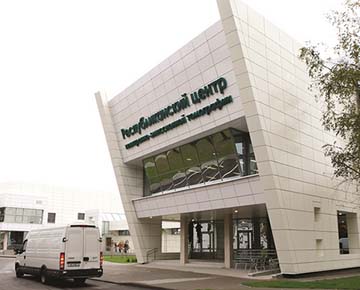National Oncology and Medical Radiology Centre in Borovlyany launches National Positron Emission Tomography (PET) Centre, and National Molecular Genetic Laboratory for Cancer Research

The two new facilities came under construction in 2013, upon the Belarusian President’s order.
According to initial calculations, the schedule was for five years. However, time is money, so President Lukashenko requested the term be reduced significantly. As a result, over Br50bn has been saved. Moreover, the PET Centre and the Laboratory will begin accepting patients three years earlier, saving lives.
The President has received a report on the operation of our health protection system and on oncological matters in particular. Of course, there are many examples, with two key indicators showing the degree of progress: Belarus’ rising birth rate and falling mortality. The country boasts almost zero newborn and maternal deaths: a statistic few states can rival.
Unsurprisingly, the President’s address aroused great interest at the General Assembly’s 70th session. The protection of motherhood and childhood is among global priorities for the new millennium. While most countries dream of achieving high figures in this area, we can confidently assert that we have achieved much.

Laboratory diagnostics doctor Alexander Trebukhovsky. Photo BelTA
Positive demographic changes are the result of great planning and forethought. They are not miracles, although they may appear so against the trends in Europe and in most countries worldwide. Targeted efforts to improve the health care system and ensure its structuring (such as distribution of functions between rural medical and obstetric centres and Republican scientific-practical centres) are paying dividends. It has taken 10-15 years to see results but today’s optimistic signs are the beginning of a positive trend, which we can only hope will continue.
Cancer is a global problem and the number of those affected is annually growing. Sadly, our country is no exception. In 1990, first cases of cancer were diagnosed among 26,930 patients in Belarus; in 2015, 45,887 cases were recorded. However, according to statistics, the mortality rate in Belarus is much lower than in other CIS states, rivalling that of the average European level: 40 percent.
It seems most likely that growing figures are the result of enhanced diagnostic ability. A special state programme has been adopted in this field, with 80 new methods of diagnosis and treatment developed and implemented so far. Happily, cases of early detection are far more frequent.
Two days before the President’s visit to the Republican Scientific-Practical Centre for Oncology and Medical Radiology, a scientific-practical conference launched, entitled ‘New Technologies in Medicine’. Mr. Lukashenko met participants, who reported that, over the past 15 years, almost 100,000 oncology-related deaths have been prevented in Belarus, thanks to improved oncological care. Moreover, patients have been able to return to ‘normal life’, working and taking care of their families. There are enough cancer survivors to fill a small town, like Soligorsk. It’s a great way of measuring the efficiency of state support in this special medical avenue.
The newly opened Positron Emission Tomography (PET) Centre and the Molecular-Genetic Laboratory for Cancer Research are the strongest instruments to protect human health. These are responsible for saving lives, although it may be hard for us to understand all the technological aspects. No matter: results are key. The Centre’s equipment makes it possible to detect a single cancer cell in a human organism, finding even the gene responsible, allowing doctors to tailor treatment to individual patients. Only a few states in the world have such personal cancer treatment, but Belarus is among them.
Various medical specialists shared their views at the conference, noting particularly how PET diagnostics are necessary for children’s oncological treatment. Until recently, our specialists were obliged to refer young patients abroad, at $1,000-1,500 per test: a cost that few could afford. Now, diagnosis is available domestically. PET diagnostics are being applied to cardiac diseases also, helping decide treatment, and to neuro-surgery cases, to treat such illnesses as epilepsy, Alzheimer’s and Parkinson’s.
Belarus is among those states using high-tech approaches, with technologies improving across many branches. Moreover, with a worldwide reputation, our medical services can be used to generate revenue.
Belarusian IT specialists are also highly appreciated worldwide, earning export revenue for the country and earning good salaries, which encourages them to stay. Information technologies have no borders.
Importantly, the Borovlyany institution has received proposals on co-operation from abroad: from foreign patients wishing treatment and from foreign specialists seeking employment.
By Vasily Kharitonov
Direct speech
Alexander Lukashenko:
We’re paying special attention to health protection and this will continue, being vital to saving lives. This is our target and is highly appreciated globally. Belarus is ranked 53rd for its level of human development (among 200 states): a high result impossible without top-level medicine. Our Republican centres will enjoy leading serious technologies, generating results in transplantology, oncology and cardiology. We should also think about how to promote them to regions, creating the necessary base and conditions. We should involve all our medical public and doctors — to teach them the most advanced technologies. We’ll create the material base: tomorrow if not today. You should be ready for this, so that our leading centres achieve their potential.











